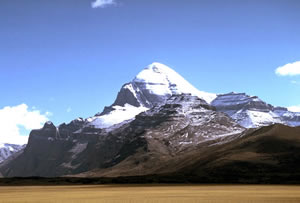Intuition and the Creation of a Better World
Spiritual Awakening, Religious Co-operation and Human Progress - A Living Experience
Dr. A.T. Ariyaratne
Dr. A.T. Ariyaratne has devoted his adult life to grass-roots development work in Sri Lanka and abroad. He is the founder of the Sarvodaya Shramadana Movement, one of the largest and most successful people's development movements in the world. His contribution to human betterment has been recognised with numerous international awards, including the Indian government's prestigious Mahatma Gandhi Peace Prize in 1996.The following article, which is reproduced here in a slightly ammended form, with the kind permission of Dr Ariyaratne, is taken from The Collected Works of AT Ariyaratne, Volume IV (published by Sarvodaya Vishva Lekha). It is taken from a speech delivered in 1987 at a seminar organised by the Japan Foundation for the United Nations.
For more information visit the Sarvodaya Shramadana site
When we speak of religion it is very important that we make a clear distinction between religion in its outer form and in its inner content. Most people attach themselves to the outer form of religion, with its traditions, customs and practices. We may even call this outer form the material culture of religion. On the other hand the inner content of religion consists of qualities such as respect for life, compassion, contentment, forgiveness and peace. This inner content of religion may be called the spiritual culture of religion.
When followers of religions give more importance to their external form or the material culture, conflicts are bound to arise. The inner content loses its vitality and religion becomes another factor that divides human beings into conflicting groups. History abounds with instances of such conflicts, which have led to violence, misery and to the destruction of both human lives and the finest forms of art and architecture. Religion devoid of its spiritual content is sometimes worse than any other materialistic ideology that divides human beings, leading to violence and destruction. It is not possible to bring about any worthwhile and sustainable unity and co-operation among religions unless the spiritual content of religions is given more importance. In other words the most critical challenge of our times is the awakening of spirituality in man. Concepts like unity, co-operation and compassion become concrete realities only when man transcends the outer form and delves deep into the inner spirit of the human personality. Only spiritual awakening in human beings irrespective of their religious motivation can bring about lasting co-operation.
What do I mean by spiritual awakening? Permit me to explain this from a Buddhist point of view. As I am a Buddhist layman, like one in any other religion, I have to follow certain customs, practices and traditions. These may be performed in a mechanical way providing me with psychological security as an individual belonging to a larger group. At this mechanical level there is hardly anything I have in common with followers of other religions who have other forms of worship, traditions, customs and practices. I take refuge in the Buddha (the Awakened One), the Dhamma (the Doctrine) and the Sangha (the Community of Monks) and promise to abstain from killing, stealing, adultery, lying and consuming intoxicants.
There may be others belonging to other religions who take refuge in other forms which may have quite a different character. So in the outer manifestation of religion there will always be differences which are difficult to reconcile. So at this level I do not think that true co-operation is possible. On the other hand a kind of temporary co-existence or a state of no war, while the parties are fully armed, is possible. But this is not true peace. For true peace to be there, readiness with arms has to be replaced with a deeper spiritual arsenal of understanding....
I am sure all religions in their essence have teachings that go deep into the analysis of the human consciousness, mind and thought processes. At those levels external forms become increasingly less important and to that extent human beings can come closer to one another. Therefore instead of religious co-operation a kind of spiritual communion can come into being in the affairs of people. Without this kind of spiritual awakening all other kinds of advancement will come to nought.
The fundamental question before those who believe in the importance of religions as instruments to build peace and justice, therefore, is how to bring about such a transformation of understanding in the minds and thought processes of human beings who belong to the various religions in the world. I personally believe that much more effort should be put into bringing about the inner spiritual awakening of human beings using religious organisational structures and resources but transcending religious barriers. For example inter-faith groups can organize meditation practices under the guidance of experienced teachers so that more and more human beings of different faiths can realize the underlying spiritual unity among all people. A deeper understanding of the consciousness and the mind processes will certainly awaken the personalities of followers of religions, helping them to get closer to the teachings of the founders of religions. Here what becomes more important is not the outer form but the inner content of religion.
The vast majority of people in our world are poor, powerless -and deprived. No amount of meditational practices will allow them to catch up unless their basic human needs are satisfied. And as much as these needs are of a material nature they also have a non-material dimension. While sufficient food is necessary for their normal physical growth they need participatory opportunities for the development of their mind.
This brings us to the realization that spiritual awakening should be closely linked with a programme for economic and political emancipation and justice.
When I speak of political and economic emancipation I am not so over ambitious as to call for a sudden macro-level revolutionary change in the present national and international arrangements. At the macro-level even religious hierarchies are often linked up with unjust political and economic empires which are too strong to be dealt with in this manner. I am only referring to those micro-level community organisations who have to be liberated from political and economic bondage simultaneously with a spiritual awakening.
Macro-level organisations, including very healthy ones such as United Nations institutions, are lamenting the fact that their capacity to deal with deepening crises has been outstripped by the very acceleration of the crises. Weapons of mass destruction, widespread armed conflicts, unstable monetary systems, destruction of ecosystems, the rise of racism, the widening poverty-gap, terrorism, the breakdown of social systems and so on are cited as processes that plague humanity. Governments and national and transnational macro institutions appear to be doing their best for the survival of their institutions rather than this planet earth or the human beings and other living forms inhabiting it.
My contention is, for the sake of human survival and for the survival of life on this earth, vested interests should make a sacrifice of their politico-economic institutions. They should decentralize decision-making powers to levels closest to the people. Human beings still possess the ingenuity and creativity to decide by themselves and to adjust themselves to a sustainable life-style within a given set of circumstances conditioned by natural and other relevant factors. The tragedy is that in most countries this opportunity and freedom are denied to them by external powers which dominate over them.
Without a politico-economic environment conducive to spiritual awakening, it is extremely difficult and almost impossible to halt the deepening global crises. It is for this reason I insist that whatever global approach we make has to be firmly founded on the tens of thousands of small communities spread throughout our globe, who have to be made to participate fully in reconstructing our civilization. Spiritual Awakening, Religious Co-operation and Human Progress can become realities in decentralised micro-approaches of such a nature.
In Sri Lanka such a movement of Spiritual Awakening leading to Religious Co-operation and Human Progress has been developing now for nearly three decades. It is popularly known as the Sarvodaya Shramadana Movement, which literally means Awakening of all through shared labour. The Movement was inspired by the Gandhian Sarvodaya Movement in India and developed on a foundation of Buddhist principles. The movement is not religious in a sectarian sense. It is founded on spiritual principles transcending religious barriers so that people belonging to all religions can work together for social, political and economic progress. It has spread to over 8000 village communities in Sri Lanka involving about three million people, which is nearly 20% of the total population. [These figures are for 1987. By 1999 the movement was working in over 12,000 villages.] It has developed fraternal links with similar people's movements in other countries....
I will very briefly describe how this movement functions. Firstly it invites people to volunteer to serve in communities by sacrificing their time, thought and efforts. This sacrificial act results in building houses, water supplies, irrigation facilities, meeting sanitary and health needs, agricultural works and other forms of community services, helping needy people to satisfy their basic needs. In the process of participating in such activities, there are spiritual, moral and cultural awakening programmes that are carried out as an integral part of such development activities. These programmes help participating individuals to awaken their personalities by cultivating qualities of loving kindness, compassionate actions, selfless joy and equanimity. Similarly, as a group they can cultivate qualities of sharing, pleasant speech, constructive activity and equality in association.
People of different religious persuasions thus come together with a spiritual motivation. In other words processes of spiritual motivation, community service, religious co-operation and human progress follow one after the other.
With communities where these kinds of programmes are initiated, a psycho-social infrastructure is built where its members feel one with humanity. They are capable of transcending religious, linguistic, ethnic, ideological and racial barriers. In Sri Lanka in the Sarvodaya villages all communities live together in peace without any communal problems. This psycho-social infrastructure is followed up with more and more sophisticated programmes of balanced spiritual and material development, improving the quality of life of people, making full use of scientific knowledge and appropriate technology. This is a brief account of the Sarvodaya Shramadana Movement in Sri Lanka.
There are many people's movements around the world like Sarvodaya which have thus harmonized spiritual values and material development for a sustainable life style. In these movements I see the needed frame-work for the survival of humanity. Unfortunately, most of the government and inter-governmental organisations and multi-national commercial establishments which have the capacity to assist these efforts underestimate the validity and capabilities of these micro-organizations and hardly support them. Mere recognition of their services is not enough, what is needed is concrete action to support these people's efforts, which are the critical processes at work to change the balance in favour of survival of value systems, nature and the human species itself.

